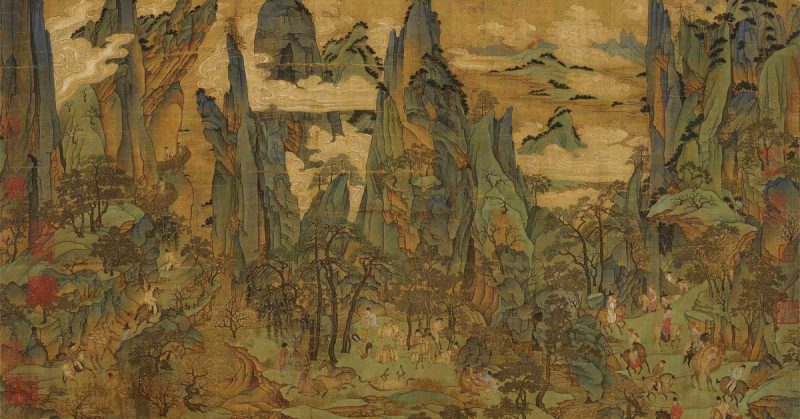War History Online presents this Guest Article from Hikma History
Pivotal or Overblown?
Some battles are seen as landmark moments; their result could be the catalyst for monumental change for centuries to come. The Battle of Talas in 751 is considered as one of those moments. Let’s explore why.
What happened?
In the years leading up to 751, both the Chinese Tang Dynasty and the Arab Umayyad Caliphate had both been expanding aggressively into Central Asia – rendering a collision inevitable. The region had already featured prominently in Islamic history because the Abbasid Revolution in the late 740’s, which replaced the Umayyads with the Abbasids, was centred around the province of Khorasan (modern-day western Afghanistan, north-eastern Iran and Uzbekistan).
Other than serving the goals of an expansionist religious or political creed, Central Asia was super important because it was a nexus point for the lucrative Silk Road.

The spark for the Abbasid-Tang conflict was provided by the local city-states. In 750, the King of Fergana had a border dispute with the ruler of neighbouring Chach. Fergana asked the Chinese for help, which was duly obliged by General Kao of the Chinese western army. Chach’s ruler was beheaded but his son escaped and sought refuge with the famous Abbasid General Abu Muslim Khorasani, who was keen on curbing Chinese influence in the region.
The Arab forces were joined by the Uighurs and the Tibetan Empire (which was a major regional power at the time). The two sides met at Talas, in modern-day Kyrgyzstan. After five days of intense fighting, the Battle’s result was determined by the Karluks’ (Turkic nomadic tribe) defection from the Chinese to the Arab side, which consequently led to the destruction of the Chinese forces.

Aftermath
The reality of Talas’ consequences has been mixed with mythology in the popular imagination. For instance, it is claimed that the Muslim victory caused the Chinese to abandon Central Asia. This is simply not true. Even though the result of Talas was decisive and caused much damage to the Chinese army, only a few years after, in 755, the Tang dynasty recruited a large army to contest the influence of the Abbasids in the region. The plan was cut short by the An Lushan Rebellion (755-763), when the seditious Chinese General An Lushan declared himself Emperor of a new dynasty and marched on the imperial Chinese capital. In the ensuing conflict the An Lushan Rebellion was eventually put down but the imperial authority of the Tang would never properly recover, so much so that they no longer had the privilege of casting their sights on expansion but rather focus their efforts on the heartland of their realm. This is how the Chinese came to lose what they called the ‘Western Regions’ (Central Asia).

But Talas’ place in history is assured by the fact that it may have been impetus for bringing paper-making technology to the Middle East and on to Europe. Supposedly (there is a historical debate on this) Chinese prisoners captured at the Battle of Talas shared their knowledge with their captors – the Chinese had been using paper for centuries whilst the rest of civilisation slacked behind with more primitive methods such as clay, papyrus and parchment. This theory is aided by the fact that there is documented evidence of these expert individuals, such as Tou Houan. In addition, paper manufacturing can be observed in the Middle East for the first time by the end of the eighth century, which resulted in the proliferation of texts produced in centres of learning such as Baghdad.
Conclusion
It seems that the Battle of Talas’ reputation as spelling the end of Chinese influence in the area was, at best, circumstantial due to the occurrence of the An Lushan Rebellion which happened only a few years later and was the real reason. Whilst Talas’ geopolitical ramifications may have been blown out of proportion, its significance in transmitting paper-making technology definitely warrants consideration as being a truly significant event in history.
